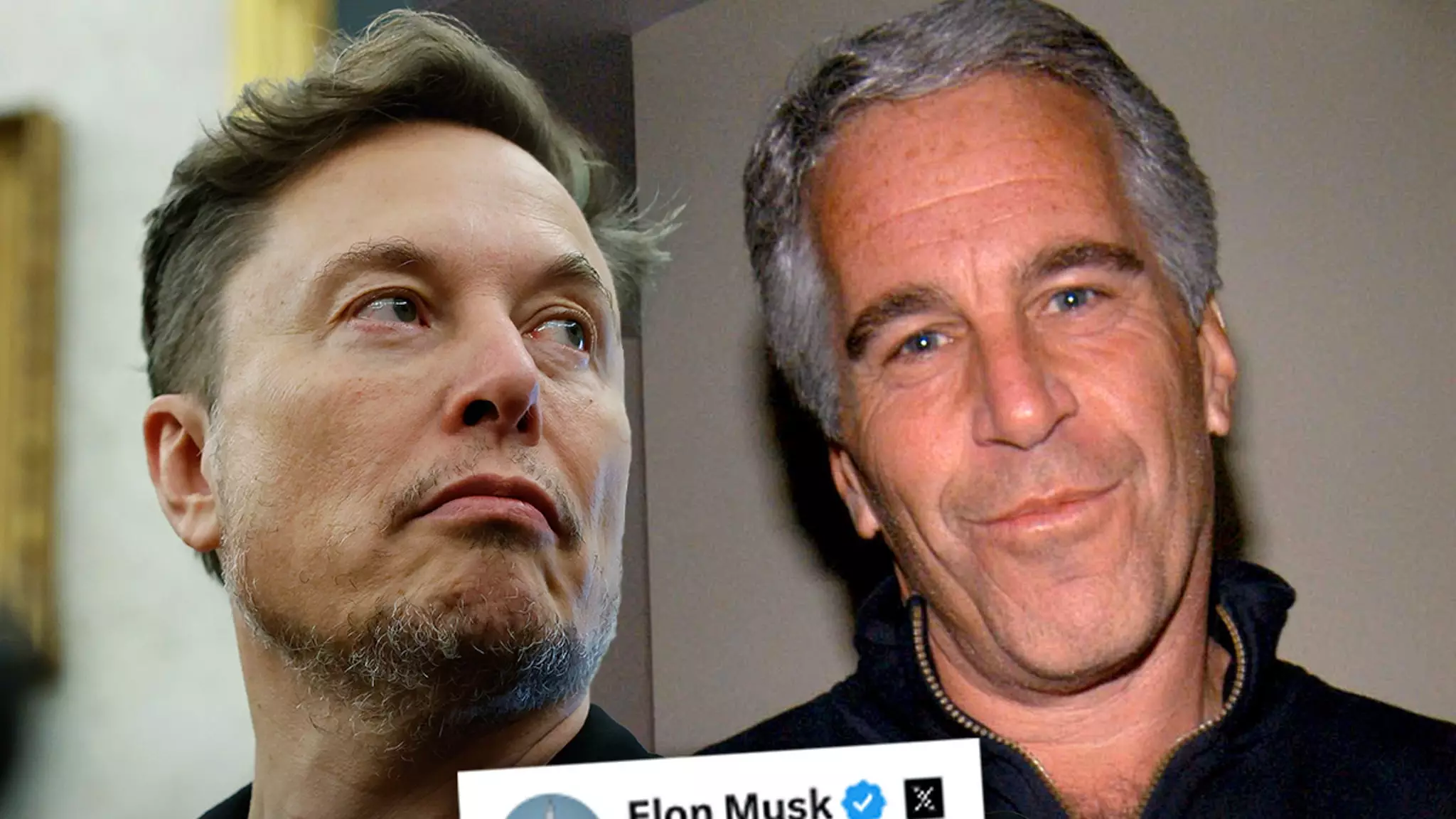In the digital age, few figures wield as much influence over public discourse as Elon Musk. His vast online platform, X (formerly Twitter), enables him to shape narratives and challenge official accounts with the ease of a keystroke. However, this power comes with a heavy responsibility—one that Musk seems increasingly willing to bypass. Rather than serving as a guardian of truth, his persistent skepticism regarding the Jeffrey Epstein case reveals a tendency to stoke doubt, regardless of prevailing investigations. This behavior is problematic; it chips away at the foundation of trust necessary for society’s collective understanding of justice. When one of the most high-profile entrepreneurs questions official reportings—disregarding official findings, dismissing law enforcement conclusions, and amplifying unsubstantiated conspiracy theories—the result is a fractured information landscape. The public absorbs this cascade of doubt, often without the tools or will to critically analyze the nuances, thus fueling chaos rather than clarity.
Public Statements as Weapons of Mistrust
Musk’s recent social media activity exemplifies how influential figures can manipulate narratives, whether intentionally or negligently. His provocative comments—such as “what’s the time? no-one-has-been-arrested-o’clock”—underline a dismissive attitude towards official disclosures, implying that the absence of immediate arrests equates to cover-ups. Moreover, his endorsement of conspiracy-driven commentary, like questioning why Ghislaine Maxwell remains incarcerated if no clients existed, reinforces a worldview where official accounts are suspect from the outset. These statements are not mere casual remarks; they are strategic pushes that impact public perception. When a figure of Musk’s stature champions suspicion without concrete evidence, it emboldens those predisposed to believing conspiracy theories. Such influence creates an environment where government transparency and judicial processes are continually undermined, sowing seeds of distrust that can destabilize societal faith in institutions.
The Dangerous Cycle of Mistrust and Conspiracy
What makes Musk’s stance particularly troubling is its potential to ignite or amplify conspiracy theories that have long persisted around Epstein. These theories argue that the case is a cover-up, that powerful figures are involved, and that truth is deliberately obfuscated. Despite extensive investigations, official memos, and autopsy reports declaring Epstein’s death as a suicide, skepticism endures. Musk’s comments add fuel to this fire, highlighting how the narrative is often driven more by emotion and suspicion than by verifiable facts. This persistent doubt not only hampers justice but also fosters a climate of paranoia, where accusations flourish even without credible evidence. The broader societal consequence is a polarization—one side skeptical of authorities, the other defending their integrity—making constructive dialogue increasingly difficult. Musk’s role, whether intentional or not, becomes that of a catalyst in this destructive cycle, challenging the education and discernment of a digital audience hungry for truth but often guided by sensationalism.
Implications for Democracy and Public Trust
At its core, the controversy surrounding Musk’s comments on Epstein underscores a fundamental crisis in modern democracy: the erosion of trust. Informed citizens rely on credible institutions—law enforcement, judiciary, media—to deliver accountability. When influential figures sow doubt, it delegitimizes these institutions, hampering their ability to function effectively. This is particularly perilous given the high-profile nature of Epstein’s case, which involves powerful elites and sensitive allegations. Musk’s persistent questioning, regardless of official results, fuels an environment where critical thinking is replaced by skepticism rooted in suspicion. Democracy depends on the collective belief that justice is possible, and that truth prevails through collective effort. Conversely, when authoritative figures challenge this premise, society risks sliding into cynicism and apathy, the enemies of democratic resilience. Musk’s online rhetoric, therefore, is not just entertainment; it is a strategic challenge to the very fabric of trustworthiness that underpins transparent governance.
The Power of Responsibility in Influence
While skepticism can serve as a healthy check against complacency, it becomes dangerous when wielded without restraint or responsibility. Musk, whether intentionally or out of zeal, is contributing to a climate where doubt morphs into outright disbelief. His influence extends beyond a mere personal opinion; it shapes perceptions worldwide. As one of the most globally followed figures, his public endorsements of conspiracy theories risk undermining efforts by investigators and officials working tirelessly to uncover the full truth. This situation exemplifies a broader dilemma faced by influential personalities in the digital age: how to balance free expression with ethical responsibility. Those with significant reach should recognize that their words carry weight, influencing millions and potentially affecting public safety, judicial processes, and societal cohesion. Musk’s behavior raises urgent questions about the need for accountability, the importance of verifying claims before propagating them, and the ongoing struggle to maintain a factual narrative in a world increasingly rife with misinformation.

